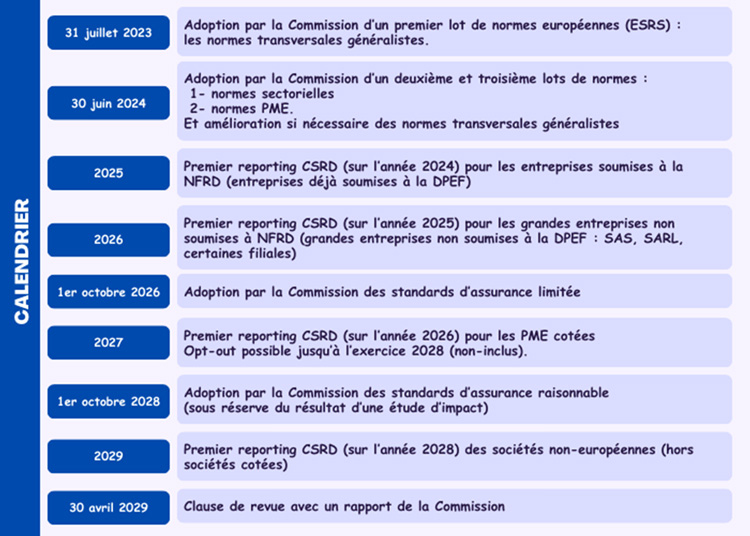
Vehicle fleet management is about to undergo major changes when the European Corporate Sustainability Reporting Directive (CSRD) comes into force on 7 December 2023. The aim of this legislation is to harmonise sustainability reporting, and to improve corporate responsibility in terms of sustainable development and transparency in their CSR approach.
Find out in this article about the main changes to be expected and the new features that will have an impact on vehicle fleet management.
1 What is the CSRD Act?

The European CSRD directive is a new regulation that will be phased in based on certain criteria and will require more than 50,000 companies to disclose information on corporate social responsibility (CSR) issues in their financial reports from January 2024.
This directive replaces the NFRD (Non-Financial Reporting Directive). In other words, companies will have to include more qualitative and precise information on their social and environmental impact in their "traditional" financial reports.
2. Does the CSRD apply to me?
European companies
| Date | 1st January 2024 | 1er January 2025 | 1er January 2026 |
| Types of company | Large listed companies : | Large companies concerned if they meet 2/3 of the following criteria: | Listed SMEs concerned if they meet 2/3 of the following criteria: |
| Size | 500+ employees | 250 employees or more | 10 employees or more |
| Sales figures | Annual sales of €40 million or more | 900,000 euros or more in annual sales | |
| Balance sheet total | Balance sheet total of €20 million or more | Balance sheet total of €450,000 or more |
3. Changes and consequences for vehicle fleet management :

- An obligation to report on CO2 emissions: companies will have to provide information on the CO2 emissions of their vehicle fleet, as well as on the measures put in place to reduce these emissions. In this respect, vehicle fleet management solutions, such as the Optimum AutomotiveThese can be used to provide invaluable indicators of the environmental impact of vehicle fleets, as well as to implement practical measures to reduce and optimise CO2 emissions from vehicles and, more broadly, from professional mobility: analysis and optimisation of driving behaviour, car-sharing/car-pooling, alternative mobility.
- An analysis of the business risks associated with climate change: companies are encouraged to identify, mitigate and report on the negative impacts and risks of climate change on their business.
- Taking account of negative externalities: companies will have to take account of negative externalities, such as air pollution and road accidents, in their car fleet management. This includes assessing the impact of these externalities on the company's financial performance and implementing strategies to mitigate them.
4. New features and changes to be expected :
- Harmonisation of sustainability reports: companies will have to use a standardised format for their sustainability reports, which will make it easier to compare companies and improve transparency.
- External verification of the sustainability reports: the sustainability reports must be verified by an independent third party, to reinforce the reliability of the information provided. (Statutory auditor or accredited independent third-party organisation)
- An extension of the directive's scope: the CSRD will apply to a greater number of companies than at present.
5. Timetable for the implementation of the CSRD

In a nutshell
The climate emergency is now very real, and companies are being encouraged to make their contribution, whatever their size. For several years now, there has been a proliferation of measures (LOM, ZFE, etc.) aimed at minimising the environmental impact of car fleets and business travel. To facilitate this transition to more sustainable mobility, it is vital that companies are equipped with tools to measure and reduce their carbon footprint.
Specialising in connected vehicles and professional mobility since 2006, Optimum Automotive supports companies and public authorities in the financial and environmental optimisation of mobility through 4 areas of expertise:
- Optimum Automotive a car fleet management solution that brings together all the connected services.
- Optimum Carsharing : a shared mobility solution to introduce and promote car-sharing and car-pooling in the workplace.
- Optimum Data Mining : an automated advice centre based on the intelligent use of data to guide decision-making on vehicle fleet management and employee mobility.
- Optimum Mobility : global employee mobility solution (Mobility Pack) to manage all business expenses, as well as Crédit Mobilité and Forfait Mobilités Durables.


